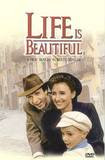My sister, Sheri, posted on her blog that one of her friends had a son pass away this week. His name was Keegan and although I never met him, I cried.
**********************************************************************************
I was sitting at the funeral of a lovely lady who went to our church. She had just passed away from Leukemia and was the wife of a doctor. It was a beautiful funeral. Beautiful flowers. Talks. And music. When her husband, the doctor, got up to speak, he should have had his clipboard with him.
**********************************************************************************
I was sitting at the funeral of a lovely lady who went to our church. She had just passed away from Leukemia and was the wife of a doctor. It was a beautiful funeral. Beautiful flowers. Talks. And music. When her husband, the doctor, got up to speak, he should have had his clipboard with him.
The man tucks his pen in his breast pocket. And with all the tenderness of a tongue depressor, says: “Ah, such is the Lord's plan. You had best not think about it. Best get on with your life.”
He needn’t offer me any tissue. I was dry as a cinder block.
*******************************************************************************
I'm at church. This ward of well-meaning strangers is struggling to know what to do with her. I know this because from where my friend and her family sits in a sodden clump in the back pew I watch as eyes flit from looking into hers. Smiles are strained. Shoulders turn away to some sudden preoccupation. And behind her echo all the words I know she craves hearing—honest ones, simple ones like, “I know what happened and I’m sorry.” But none are spoken. For weeks upon weeks, silence swells.
Such silence sends the message that her son’s death—and his life—never happened, don’t matter. That, and the general levity, the apparent solidarity her family cannot join in, makes me think that, well, it must be time to “move on,” “find closure,” “be grateful,” “rejoice.” My gut winds itself into a knot as thick as ocean liner rope. Is wanting someone to ache with her too much to ask? Is quietly weeping through the sacrament hymn ill-placed? Is my grief selfish?
The knot groans.
And then one day in late winter a man who hadn’t spoken to her until that moment strides up to her, plants one hand on her shoulder, and with the other hand pumps hers, exclaiming, “Smile! It’s such a great day to be alive!”
My scriptures still bear the little warped pockmarks from the tears I shed on them that day as I took refuge in my car.
***********************************************************************************
Troy is straight from the cast of Grease: blonde, blue-eyed, with a smile, as quick and light on his feet as John Travolta, perfectly proportioned and looks thirty-one. Or nineteen. Ageless. He’s also been diagnosed with cancer. He catches me off guard: “Life’s short,” he says, stretching smooth a piece of his hair, eyes held at attention. “There’s never enough time to love the people who matter the most to us.”
His exact words. My heart stops. My throat constricts.
“You’re right, Troy” is all I could say. My friend Kathy buried her husband Troy four months later. When I went to his funeral, all I could say to Kathy was, "Wha...what a great man." Tears welling up in my eyes, and with a groan, she bends toward me to wrap my shoulders in a hug. “Oh, no. I am so sorry, so sorry. . .” is all I could get out.
**************************************************************************************
It’s true. Not everyone is a Troy. So many people are, gratefully, like him. . . and then some: expressive, unafraid, patient, intuitive, selfless, inspired. Being the recipient of such compassion has been utterly awe-inspiring for me. What’s been perplexing in the vicarious journey I’ve shared with many bereaved friends, has been the hurt and alienation that have come from hurtful “avoidance silence”.
Author and bereaved father, Nicolas Wolterstorff writes,
“Your tears are salve to our wounds; your silence, salt.” The comments (and silence) are almost always rooted in a lack of understanding of the nature of grief, (its duration, depth and necessity), in a misunderstanding of faith (its compatibility with grief and its potentially increased density as one reaches the bedrock of grief’s valley), and in a misapplication of “doctrine”: the mis-belief that faith supplants grief, that grief can be eradicated or curtailed by quickly “getting your mind off yourself” in service, and that if grief lasts more than “X” months or if it cries it is pathological and will damage those left among the living."
But what about the wisdom found in the 23rd Psalm? “And though I walk through the valley of the shadow of death. . .”
How can I not want to walk or crawl or claw through that valley with them? I just cannot insist they hurry, do the fake jollity-jig, buck-up, or bungee jump over it. If we, share some of that journey together, while we will be bruised and bloodied, we will also be bonded.
Inimitably to each other.













